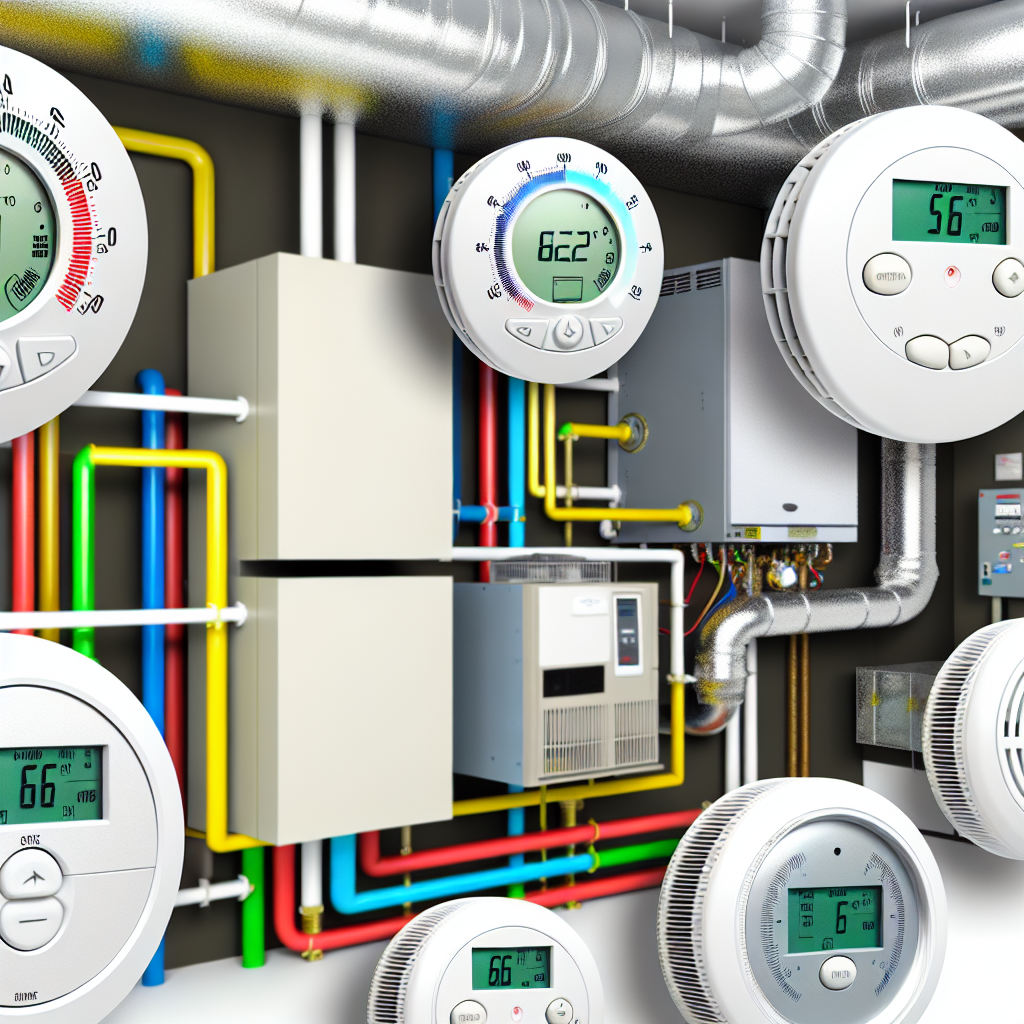Published: Mar 01, 2025

When it comes to controlling the comfort of your home and optimizing energy efficiency, a thermostat plays a crucial role in your HVAC system. With a variety of thermostats available in the market, choosing the best one for your specific needs can be overwhelming. In this guide, we will explore the essential factors to consider to help you make an informed decision when selecting the right thermostat for your HVAC system.
Before delving into the selection process, it's essential to understand the different types of thermostats available:
Manual Thermostats: These traditional thermostats require manual adjustments and are typically found in older homes.
Programmable Thermostats: Allow you to set specific temperature schedules for different times of the day, helping you save energy when you're not home.
Smart Thermostats: These advanced thermostats can be controlled remotely via smartphones or computers, learning your habits and adjusting temperatures automatically.
Ensure the thermostat you choose is compatible with your HVAC system. Some systems may require specific types of thermostats for optimal performance.
Consider whether you have a single-stage, multi-stage, or heat pump system as different thermostats are designed to work with specific HVAC configurations.
Opt for a programmable or smart thermostat to maximize energy efficiency by regulating temperatures based on your schedule and preferences.
Look for features such as Wi-Fi connectivity, touchscreen displays, humidity control, and energy usage reports to enhance convenience and control over your HVAC system.
Set a budget and explore thermostats within that range. While smart thermostats may have a higher upfront cost, they can lead to long-term energy savings.
Research reputable thermostat brands known for quality, reliability, and excellent customer support to ensure you invest in a durable product.
Depending on your technical skills, you may choose to install the thermostat yourself or hire a professional HVAC technician for seamless installation and setup. Improper installation can affect the thermostat's performance and your HVAC system's efficiency.
Regularly check and calibrate your thermostat to ensure accurate temperature readings and efficient operation. For smart thermostats, monitor energy usage and adjust settings as needed to optimize energy savings.
Choosing the best thermostat for your HVAC system involves considering compatibility, system type, energy efficiency, features, budget, and brand reputation. Whether you opt for a basic programmable thermostat or invest in a smart thermostat for advanced control, selecting the right thermostat can enhance comfort and save on energy costs in the long run.

Our expert technicians are ready to assist you 24/7!
Contact Us Today!Read our latest articles for helpful information about heating, cooling, and air quality.
Implementing strategies such as regular cleaning, humidity control, ventilation, air purification, and allergen prevent...
Read MoreInstalling a smart thermostat in your home can enhance comfort, optimize energy efficiency, and provide long-term cost s...
Read MoreRegular maintenance and timely tune-ups are essential for ensuring your HVAC system operates efficiently and effectivel...
Read MoreSmart thermostats are a wise choice for homeowners seeking to enhance energy efficiency, save on utility bills, and opt...
Read More